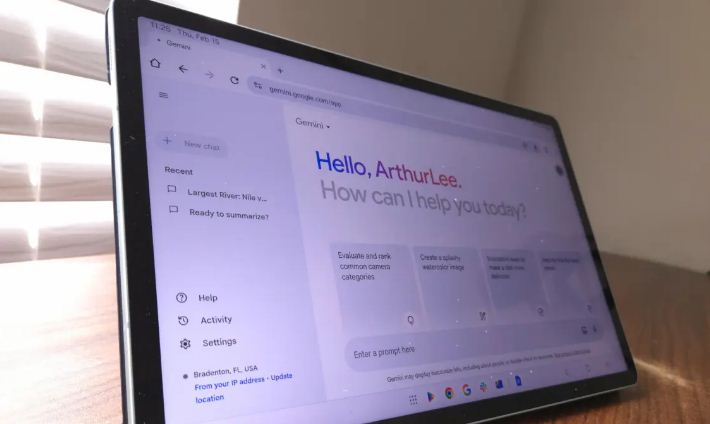Google has taken a momentous step by introducing the Gemini app for Android phones. This innovative move not only extends Gemini’s advanced AI capabilities to small screens but also signals a gradual shift from Google Assistant to Gemini. However, amidst the excitement surrounding this release, a wave of disappointment rippled through the user base as the Gemini app initially lacked compatibility with Android tablets. Fortunately, recent reports indicate that this issue is soon to be rectified, heralding the imminent arrival of the Gemini app on tablets. Gemini app to Android tablets is good news for the global users.
Despite its promising debut, Gemini currently falls short in several key features compared to its established predecessor, Google Assistant. This deficiency renders Gemini a somewhat incomplete assistant, leaving users yearning for the comprehensive functionality provided by Google Assistant. The question of when Google intends to phase out Google Assistant remains unanswered, lingering in the minds of technology enthusiasts.
Unsurprisingly, the forthcoming availability of the Gemini app on tablets is set to commence with Google’s first-party device, the Pixel tablet. This strategic choice aligns with Google’s emphasis on offering a seamless experience across their ecosystem. Noteworthy is the revelation that both Gemini and Google Assistant will coexist on tablets, hinting at a transitional period where users can explore the capabilities of both assistants in tandem. As of now, while Gemini shows promise, it has yet to mature into a full-fledged replacement for Google Assistant, prompting many users to default to the latter for their assistant needs.
The introduction of the Gemini app marks a pivotal moment in the evolution of AI assistants within the Android ecosystem. By leveraging Gemini’s AI prowess on smartphones, Google not only aims to enhance user experiences but also pave the way for a potential shift in the dominance of Google Assistant. As the tech giant navigates the delicate balance between maintaining its flagship assistant and nurturing the growth of Gemini, users are left to navigate the evolving landscape of virtual assistants, weighing the benefits and limitations of each option.
Looking ahead, the prospect of Gemini expanding its reach to tablets holds promise for users seeking a fluid and intuitive assistant experience across all their devices. While Gemini may currently be in its nascent stages, the trajectory it follows under Google’s guidance hints at a future where AI assistants play an even more integral role in our daily lives. Whether Gemini eventually surpasses Google Assistant or carves its own unique niche remains to be seen, but one thing is certain: the AI assistant market is poised for continued innovation and transformation.

